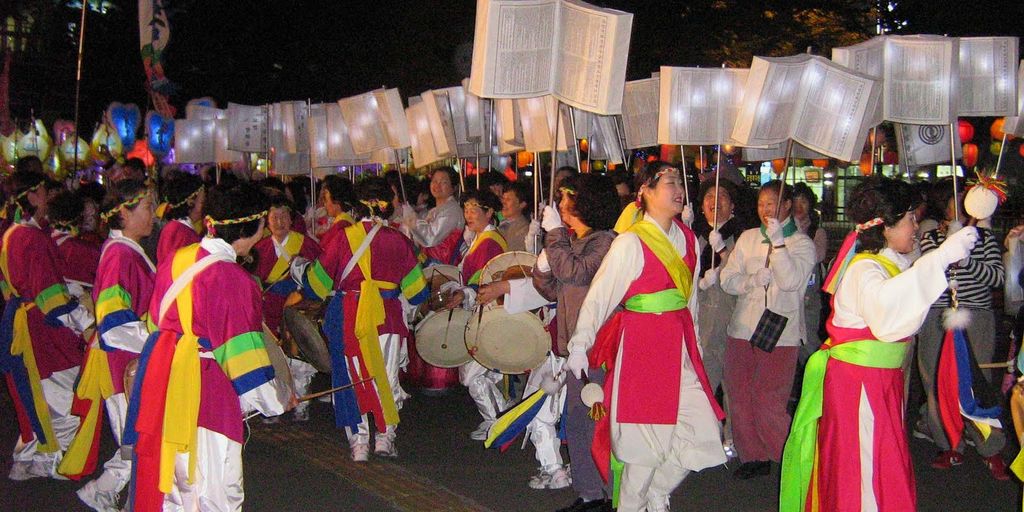
Busan, South Korea’s second-largest city, is a vibrant hub of cultural activities and artistic expressions. From traditional markets and music festivals to cutting-edge art galleries and historical tours, Busan offers a plethora of experiences for both locals and tourists. This guide will take you through some of the city’s most exciting cultural performances and attractions, ensuring you make the most of your visit.
Key Takeaways
- Busan Chinatown Culture Festival offers a variety of cultural performances, including traditional Chinese dances and street parades.
- Explore traditional markets like Jagalchi Fish Market and Gukje Market for unique foods and vibrant atmospheres.
- Busan’s music scene is diverse, featuring events like the Busan International Rock Festival and various traditional music events.
- Visit reborn cultural spaces such as Hyundai Motorstudio Busan and F1963, which have been transformed into cultural hubs.
- Discover Busan’s rich artistic heritage through events like the Busan International Film Festival and exhibitions at the Museum of Contemporary Art Busan.
Experience the Vibrant Busan Chinatown Culture Festival
The Busan Chinatown Culture Festival is a lively event held every October. It started in 2004 to celebrate the culture of overseas Chinese people along with Koreans. Each year, more visitors come to enjoy the unique culture of the Chinese in Busan.
Street Parades and Traditional Dances
The festival kicks off with a splendid street parade. Participants wear traditional Chinese clothes and perform traditional dances. The streets come alive with vibrant colors and energetic performances.
Opening and Closing Ceremonies
The opening and closing ceremonies are held at the Overseas Chinese Junior and High Schools in Busan. These ceremonies mark the beginning and end of the festival with grand celebrations.
Cultural Performances and Exhibitions
Throughout the festival, there are various cultural performances, experiences, and exhibitions. When night falls, the festival transforms into a dynamic Chinese night market, lit up with red lanterns, creating a scene straight out of a Chinese movie.
If you’re looking for entertainment, food, and attractions related to Chinese culture, the Busan Chinatown Culture Festival is the place to be. Enjoy the exotic atmosphere of Chinatown with a beautiful autumn backdrop.
Explore Busan’s Traditional Markets
Jagalchi Fish Market
Jagalchi Market is Busan’s largest seafood market, located near the waterfront in the city center. Visitors can browse the many stalls selling fresh fish and seafood and even have them cooked on-site. It’s a must-visit for seafood lovers!
Gukje Market
Gukje Market is one of the oldest in Busan, offering a wide variety of goods including clothing, souvenirs, food, and household items. Many visitors enjoy the unique foods and atmosphere, making it a popular spot among both locals and tourists.
Unique Foods and Atmosphere
Busan’s traditional markets are known for their unique foods and vibrant atmosphere. From fresh seafood at Jagalchi Market to the diverse offerings at Gukje Market, there’s something for everyone to enjoy. Don’t miss out on the chance to experience these lively markets!
Dive into Busan’s Thriving Music Scene
Busan is a city that truly loves music. It’s a place where you can enjoy a wide range of music festivals all year round. Whether you like rock, traditional music, or something in between, Busan has something for you.
Visit Busan’s Reborn Cultural Spaces
Busan is home to some amazing cultural spaces that have been given new life. These places blend tradition and innovation, making them perfect for memorable adventures.
Discover Busan’s Rich Artistic Heritage
Busan is a city that truly celebrates art in all its forms. From film to contemporary art, there’s something for everyone to enjoy. Busan’s influence comes from its rich cultural heritage and thriving arts scene, making it a hub for creative expression and innovation. Let’s dive into some of the key events and places that showcase Busan’s artistic spirit.
Take a Busan Humanities Tour
Explore the historic values of Korea at the Seokdang Museum of Dong-A University. This museum offers a deep dive into Korea’s rich history and culture, making it a must-visit for anyone interested in learning more about the country’s past.
Visit the National Memorial Museum of Forced Mobilization to understand the painful history of Korea under Japanese occupation. This museum provides a somber yet important look at the struggles and resilience of the Korean people during this dark period.
Take a tour of Busan’s provisional capital sites to learn about the city’s role during the Korean War. This tour will give you a unique perspective on Busan’s historical significance and its contributions to the country’s development.
Enjoy the Charms of Busan’s Chinatown

Historical Buildings Around Busan Station
Busan Station is surrounded by many cultural and historical buildings. You can find the Japanese Consulate, the Chinese Consulate, and even the base of the US Armed Forces. These buildings tell the story of Busan’s rich history and its connections with other countries.
Chinese Consulate and Cultural Influence
The Chinese Consulate in Busan’s Chinatown has made this area a vibrant place. The consulate has helped set up various Chinese restaurants and shops, making it a great spot to experience Chinese culture. The area is especially lively during the Busan Chinatown Culture Festival, which happens every October.
Local Eateries and Shops
If you love food, you’ll enjoy the many Chinese restaurants in Chinatown. They offer unique atmospheres and delicious dishes that attract both locals and tourists. Besides food, there are also many shops where you can buy interesting items and souvenirs.
When night falls, Chinatown transforms into a dynamic night market with red lanterns, making it look like a scene from a Chinese movie. It’s a must-visit spot for anyone looking to experience Busan’s exotic atmosphere.
Conclusion
Busan is a city that truly has it all when it comes to cultural performances and attractions. From the vibrant Busan Chinatown Culture Festival to the bustling traditional markets like Jagalchi Fish Market and Gukje Market, there’s always something to see and do. Whether you’re into music festivals, art galleries, or historical tours, Busan offers a rich tapestry of experiences that cater to all tastes. So, next time you find yourself in this dynamic city, make sure to dive into its cultural scene—you won’t be disappointed!
Frequently Asked Questions
What can I expect at the Busan Chinatown Culture Festival?
The Busan Chinatown Culture Festival offers various cultural performances, experiences, exhibitions, and stages. It begins with a street parade featuring participants in traditional Chinese attire performing dances. The opening and closing ceremonies are held at the Overseas Chinese Junior and High Schools in Busan.
What are some must-visit traditional markets in Busan?
Jagalchi Fish Market and Gukje Market are two traditional markets that have been around for decades. They offer unique foods and a vibrant atmosphere, making them popular among both locals and tourists.
Which music festivals are held in Busan?
Busan hosts a variety of music festivals throughout the year, including the Busan International Rock Festival and various traditional music events. The city’s thriving music scene attracts visitors from around the globe.
What are some notable cultural spaces in Busan?
Notable cultural spaces in Busan include Hyundai Motorstudio Busan, Mangmidan-gil Art Gallery, and F1963, which has been transformed from a wire factory into a cultural hub.
What artistic events should I attend in Busan?
Key artistic events in Busan include the Busan International Film Festival, Busan Biennale, and exhibitions at the Museum of Contemporary Art Busan.
What historical sites can I visit on a Busan Humanities Tour?
A Busan Humanities Tour includes visits to the Seokdang Museum of Dong-A University, the National Memorial Museum of Forced Mobilization, and the Provisional Capital Tour.

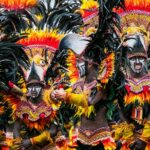
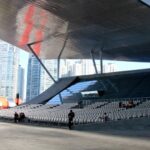
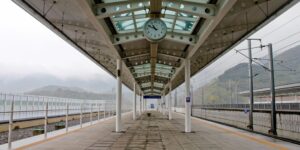
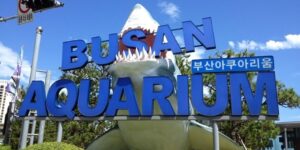
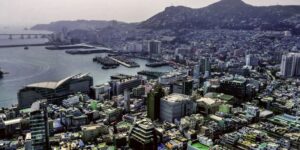
No comment yet, add your voice below!